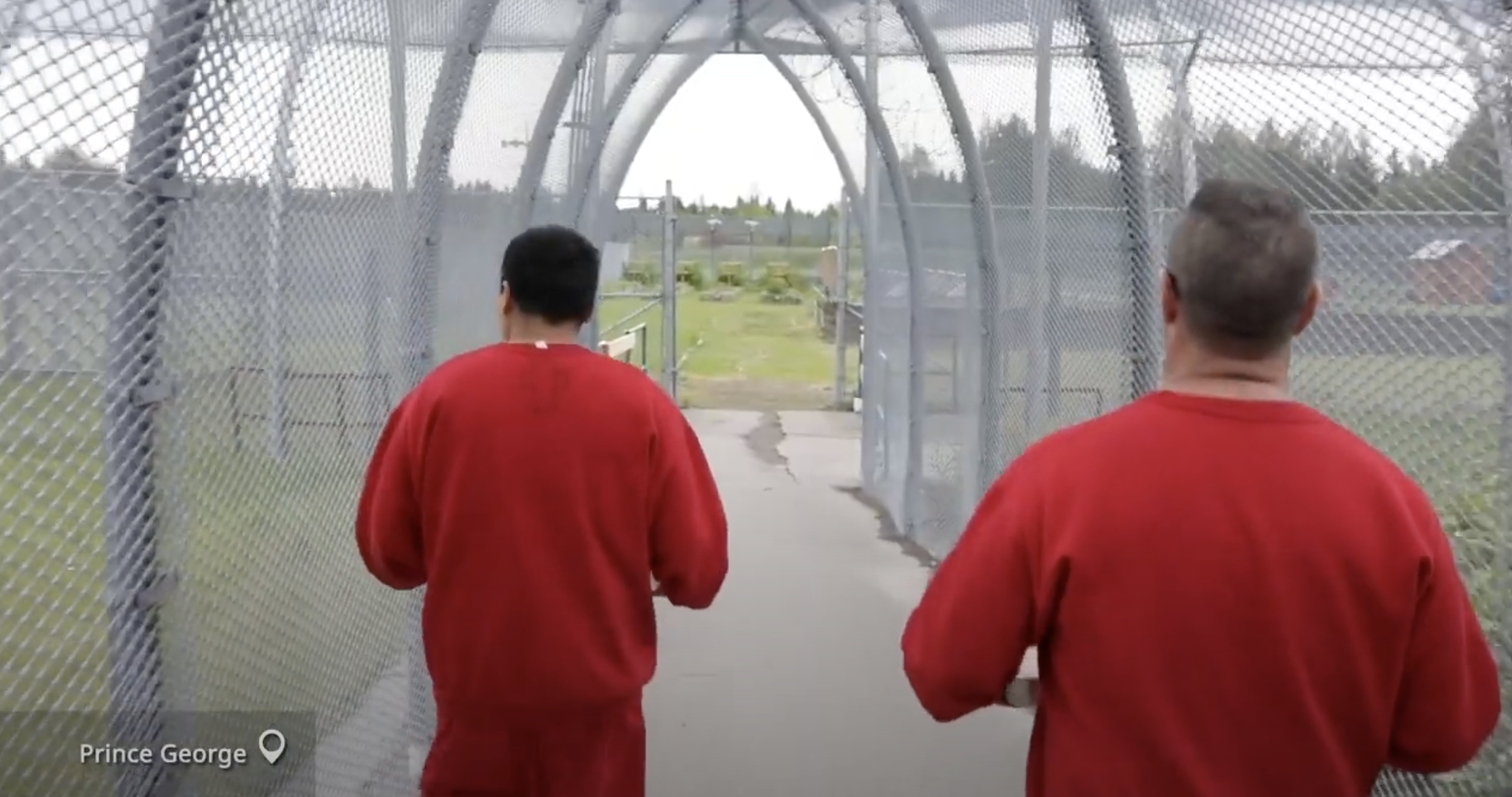Correcting Cannabis Warrior’s Inaccuracies on RMLW and RCPA

Let Truth and Falsehood grapple. Who has ever known Truth to be put to the worse in a free and open encounter?
– John Milton, Areopagitica
In the ongoing debate between supporters of the Repeal Cannabis Prohibition Act of 2012 (RCPA) and the Regulate Marijuana Like Wine Act of 2012 (RMLW, which I support), there are few people meaner and more vicious than Mickey M. He writes a blog called Cannabis Warrior in which he typically inserts more personal attacks and insults into one article than the rest of the cannabis movement puts in their blogs for the entire year. Because he can’t bare to be respectful, Mickey M. has altered my initials to be “DMV” (Department of Motor Vehicles) instead of DML. At the risk of becoming his favorite target forever, I have decided to try and correct him on some of his – and RCPA author Bill Panzer’s – inaccuracies in his latest article in support of RCPA.
The inaccuracies are in blockquotes, and my responses follow:
“Why they let DMV post up whatever he wants unchecked is beyond me after the crap he spread about Prop. 19 …”
The authority Mickey M. relies upon for his latest article – Bill Panzer, a “real California Attorney” – is the same authority who disputed Mickey M. and the rest of the Prop 19 supporters’ claims about it being “legalization” or about it protecting med pot cultivation rights. Here is Panzer’s quote from an article about Prop 19 on October 30, 2010:
First, Prop 19 is not “legalization” and I don’t believe those in the movement who are against Prop 19 are against legalization. To the contrary, I believe most movement opponents are against 19 because they are FOR legalization. … If an appellate court were inclined to find that Prop 19 preserved all 215/420 rights, there is language in 19 to support that. If, on the other hand, an appellate court was inclined to find that 19 allowed local municipalities to impinge on 215/420, there is language that could support that position too. The bottom line is that the body of the statute could have clearly stated that local municipalities are not authorized to pass any ordinance or regulation that infringes on 215/420 in any manner, but it doesn’t. … What makes little sense to me is that this initiative, which doesn’t legalize cannabis, is being sold as legalization. It seems to me, it would make more sense to draft an initiative that does legalize cannabis and sell it as regulation. Nevertheless, because it is being touted as legalization, if it passed it would be perceived around the world as legalization. It would also give some modest protections to cannabis users. It essentially protects you from getting an infraction ticket in your own home so long as there are no children under the same roof.
“It wasn’t written by an unbiased reporter…”
I’ve never pretended to be an “unbiased reporter”. There is no such thing as an “unbiased reporter” … or an “unbiased human”, for that matter. Every person has a bias. There are close to 88 thousand hits for “myth of objectivity” in a Google search, and over 250 thousand hits for “advocacy journalism”, in case anyone wants to learn more about this myth.
“Mr. Malmo-Levine has been asked, but never been able to explain how, under RCPA, prohibition could still exist with no laws outlawing cannabis on the books.”
I’m not a lawyer so please someone correct me if I’m wrong, but I did notice that not removing California Health and Safety Code Section 11999 leaves cannabis defined as a controlled substance. And Section 11366.8 (which RCPA does not remove from the California Health and Safety Code) says:
(a) Every person who possesses, uses, or controls a false compartment with the intent to store, conceal, smuggle, or transport a controlled substance within the false compartment shall be punished by imprisonment in a county jail for a term of imprisonment not to exceed one year or in the state prison.
(b) Every person who designs, constructs, builds, alters, or fabricates a false compartment for, or installs or attaches a false compartment to, a vehicle with the intent to store, conceal, smuggle, or transport a controlled substance shall be punished by imprisonment in the state prison for 16 months or two or three years. (c) The term “vehicle” means any of the following vehicles without regard to whether the vehicles are private or commercial, including, but not limited to, cars, trucks, buses, aircraft, boats, ships, yachts, and vessels. (d) The term “false compartment” means any box, container, space, or enclosure that is intended for use or designed for use to conceal, hide, or otherwise prevent discovery of any controlled substance within or attached to a vehicle, including, but not limited to, any of the following: (1) False, altered, or modified fuel tanks. (2) Original factory equipment of a vehicle that is modified, altered, or changed. (3) Compartment, space, or box that is added to, or fabricated, made, or created from, existing compartments, spaces, or boxes within a vehicle.
So if it’s true that RCPA keeps cannabis as a controlled substance, wouldn’t it follow that – even if RCPA passes – one can still be busted for smuggling a controlled substance with a false compartment under 11366.8? It appears to this layman that RCPA prevents people from lawfully hiding their stash to prevent theft, whereas RMLW allows people to hide their stash.
Furthermore, it’s hard to predict what the establishment will do if we give them a bit of wiggle room. The question is, why give the US Federal government any wiggle room at all? Do we really want to play the game of “I wonder what a room full of lawyers with an unlimited budget can come up with if we give them that much wiggle room”?
Maybe it makes it easier for the establishment to write new anti-pot laws. Maybe it makes it easier for them to continue to discriminate against our community in some unforeseen way. Maybe it would be wiser for our group not to give them the opportunity to have such a beach-head against us.
What was the reasoning behind not removing the definition of cannabis as a controlled substance? Was it an oversight? Is refusing to deal with that oversight just an ego thing?
When Prop 215 passed, it was written in such a way as to allow for arrests. It wasn’t supposed to, but because it had the word “exempted” (it should have said “enjoins arrest”) it allowed for arrests. It was a massive screw up. In the aftermath of the passing of Prop 215, then State attorney General Dan Lungren made sure that the new law would be interpreted narrowly. We can assume that law enforcement will still be looking for any excuse to continue to continue to persecute us, and this author is baffled at the RCPA’s cavalier attitude towards leaving one of the pot laws on the books. We think it’s impossible to imagine every scenario that the Federal government’s lawyers might come up with, and all that would be required to not have to worry about it at all is to include section §11999(b) in the list of sections removed.
“RCPA removes both cannabis and tetrahydrocannabinols from the schedules (RMLW likely leaves tetrahydrocannabinols in the schedule – admittedly it is unclear as RMLW doesn’t actually specify ‘terahydrocannabinols’. This would be left to the courts to sort out under RMLW).”
Unfortunately, Mr. Panzer does not mention which section of RCPA removes “tetrahydrocannabinols” from the schedules. RCPA does not mention the word “tetrahydrocannabinols” or “THC” or “CBD” in it’s text. RMLW does explicitly mention the major cannabinoids as removed from the schedules:
(3) Removes “marijuana,” “THC,” and “CBD,” explicitly or by inference as a controlled substance, from Health and Safety Code section 11054.
Furthermore, while we’re on the topic of things an initiative failed to remove from the schedule, it appears to this layman that RCPA failed to remove the anti-paraphernalia law: Section 11364.5.
So, if RCPA passes, it appears that you will still get busted for hiding your pot, and still get busted for having any of the following on you:
(12) Objects intended for use or designed for use in ingesting, inhaling, or otherwise introducing marijuana, cocaine, hashish, or hashish oil into the human body, such as the following: (A) Metal, wooden, acrylic, glass, stone, plastic, or ceramic pipes with or without screens, permanent screens, hashish heads, or punctured metal bowls. (B) Water pipes. (C) Carburetion tubes and devices. (D) Smoking and carburetion masks. (E) Roach clips, meaning objects used to hold burning material, such as a marijuana cigarette that has become too small or too short to be held in the hand. (F) Miniature cocaine spoons, and cocaine vials. (G) Chamber pipes. (H) Carburetor pipes. (I) Electric pipes. (J) Air-driven pipes. (K) Chillums. (L) Bongs. (M) Ice pipes or chillers.
“Also left out is that RMLW doesn’t treat it like wine when it comes to minors. Under California law, selling wine to a minor is a misdemeanor, punishable by up to six months in jail. Under RMLW, selling cannabis to a minor is only an infraction – the legal equivalent of a parking or traffic ticket. Under RCPA, selling to a minor can be charged a either a misdemeanor or an infraction. One wonders how the voting public will respond to: ‘Selling pot to your 10 year old is like an expensive parking ticket’ ?”
That’s one way of looking at it. Another way is “one wonders how the voting public will respond to their kids continuing to be jailed – and possibly beat up or raped in jail – for selling pot to other kids?” RMLW does not pretend to regulate marijuana EXACTLY like wine – the initials are not “RMELW”. The word “like” – when used as an adjective – means “similar”, not “exactly the same”. I for one am glad that nobody will go to jail any more for flower crimes once RMLW passes – if the marijuana laws are to differ slightly from the wine laws, let it be in the spirit of reason and compassion for all those currently considered cannabis criminals.
“Furthermore, by not including the ‘Except as authorized by law’ language, RMLW creates am ambiguity whereby a court could find that a person under 21 could not legally possess cannabis for medical purposes.”
So let’s assume that the Judge in question ignores the section of the RMLW act which says:
(4) This Act does not control, repeal, modify, or change statutes pertaining to: (C) Medical marijuana statutes as set forth in Proposition 215 (H&S11362.5) and its progeny,
what’s the worst that could happen? Unless that person under 21 was holding more than an ounce, the maximum penalty would be a $100 fine. This gives parents the rationale with which they can make sure that their children’s medicine remains in parental – or school nurse – control, and off the playground.
“RCPA specifically provides that state law preempts local regulation. It prevents local authorities not only from banning medical distribution, but also prevents them from banning recreational sales, cultivation etc.”
The concern I raised was that RCPA won’t “prohibit local jurisdictions from banning or taxing dispensaries or instituting discriminatory licensing practices.” By not mentioning “discriminatory licensing practices” in his answer, Mr. Panzer confirms the fact that there is nothing in RCPA that will prevent the type of monopolistic regulations that currently exist in Los Angeles, which has 41 legal dispensaries in a city of 14.8 million people (which works out to one dispensary for every 360,000 people) – or Oakland, which has eight legal dispensaries in a city of 400,000 (which works out to one dispensary for every 50,000 people). In contrast, the RMLW Act will allow for one retail outlet for every 1,250 people in Los Angeles, and one retail outlet for every 2500 people in Oakland.
“This (GMO) ban is present in the ‘Purpose’ section of RMLW, but does not appear anywhere in the ‘Provisions’ section. As a result, it is not part of the actual Act and would likely have no legal force. For example, the ‘Purpose’ section of Prop. 215 stated that it was intended to protect ‘Seriously ill Californians. The term ‘seriously ill’ did not, however, appear in the ‘Provision’ section of 215. As a result, the Court of Appeal has interpreted 215 to apply to all patients with a doctor’s recommendation or approval and found that there is no requirement of ‘serious illness'”.
Mr. Panzer should know that the reason there is no requirement of “serious illness” is not because “serious illness” was not in the “provisions” section, rather, it is because the phrase “or any other illness for which marijuana provides relief” also appears in the purposes section.
In other words, there is a qualifier to “serious illness” that allows for conditions other than “serious” to be treated legally by cannabis. There is no similar qualifier to the GMO ban within the RMLW Act, so the two examples are not comparable.
“RCPA doesn’t ban GMO cannabis but, frankly, I believe, (and I think the rest of the RCPA proponents would agree) the concept of GMO monopolization doesn’t present a real threat except to some conspiracy theorists.”
Mr. Panzer should tell that to Percy Schmeiser, a Canadian farmer who was successfully sued by Monsanto because their GMO “Roundup Ready Canola” pollen had drifted onto his field. Mr. Schmeiser said:
Now, at 70, I am involved with this fight with Monsanto. I stood up to them because a farmer should never give up the right to use his own seed. I felt very strongly about it because my grandparents came here from Europe in late 1890s and early 1900s to open this land, to be free, and to grow what they wanted to grow. Now we are going back to a feudal system that they left because they were not free—basically we are becoming serfs of the land.
Farmers should be concerned about this judgment as they now may lose their ability to continue with this practice. I believe that this ruling is an injustice and Parliament must act to ensure that farmers’ rights are protected. The playing field between farmer rights and the bio-tech companies rights has been tilted towards the companies with this decision.
I have always campaigned on the right of a farmer to save and re-use his own seed. This is what I have been doing for the last 50 years. I will continue to support any efforts to strengthen the rights of a farmer to save and re-use his own seed.
Is it a “conspiracy theory” to believe that the same thing could happen to California farmers who encounter Monsanto “Roundup Ready marijuana pollen” drifting onto their crops? For those who wish to learn more about the reality of GM cannabis dangers, here is an article I wrote about it for Celeb Stoner.
“I’m not aware of any definition of ‘genetically modified’ in law that would be controlling over RMLW. I could even see a conservative prohibitionist judge ruling that a common indica/sativa cross is ‘genetically modified.'”
Mr. Panzer could see this happening, but provides no examples of any Judge being confused about what GM means.
In case anyone wants the definition of GM, it’s easy to find on the internet. Every one I have come across stipulates explicitly that it does not involve “techniques used in traditional breeding and selection”.
“Again, this is a misleading statement. The poll Mr. Malmo-Levine refers to is not about RMLW.”
The poll I referred to is about regulating marijuana like alcohol, and wine is a type of alcohol, so it’s close enough.
“Nevertheless, I don’t believe it helps our movement to publish outright false claims like those of Mr. Malmo-Levine. These are the tactics that have been championed by Karl Rove and his cronies in recent years. Such tactics may be effective in getting votes, but these are tactics without honor. We should all strive be better than that.”
Honor is very, very important in this movement. As cannabis activists, we should all be held accountable for dishonorable actions. Two points about “honor” with respect to Mr. Panzer:
1) When a lawyer makes public accusations regarding a layperson making “false claims”, they should probably make sure that they are correct, or else they might be leaving themselves open to – at the very least – a tarnished reputation if proven wrong, and quite possibly a libel suit. Given the above analysis, a public apology from Mr. Panzer to me should suffice to make things all better between us.
2) When calling someone dishonorable, it’s best not to have a reputation for sitting on the fence regarding Prop 19 until the last second, or attempting to undermine Dennis Peron’s Prop 215 efforts by filing a watered-down version of the initiative that would have resulted, in Dennis’ words, in a situation where “Patients would only be allowed to use marijuana the last half hour of their life.”
“I think there is a certain worry to having a person who claims his medical cannabis lozenge can cure Bird Flu running a campaign for cannabis freedom….but that is just me.”
Mr. Kubby points out that “Bird Flu Virus Triggers Worse Inflammation In Human Lung Cells Than Human Flu Viruses”, which is why CBD rich lozenges are the perfect solution for down-regulating the pro-inflammatory response. CBD is well-known to be an anti-inflammatory agent.
Perhaps, given how many inaccuracies can be found in his blog, Mr. Mickey M. needs to find some CBD rich cannabis strains to help him reduce his inflammatory rhetoric.



